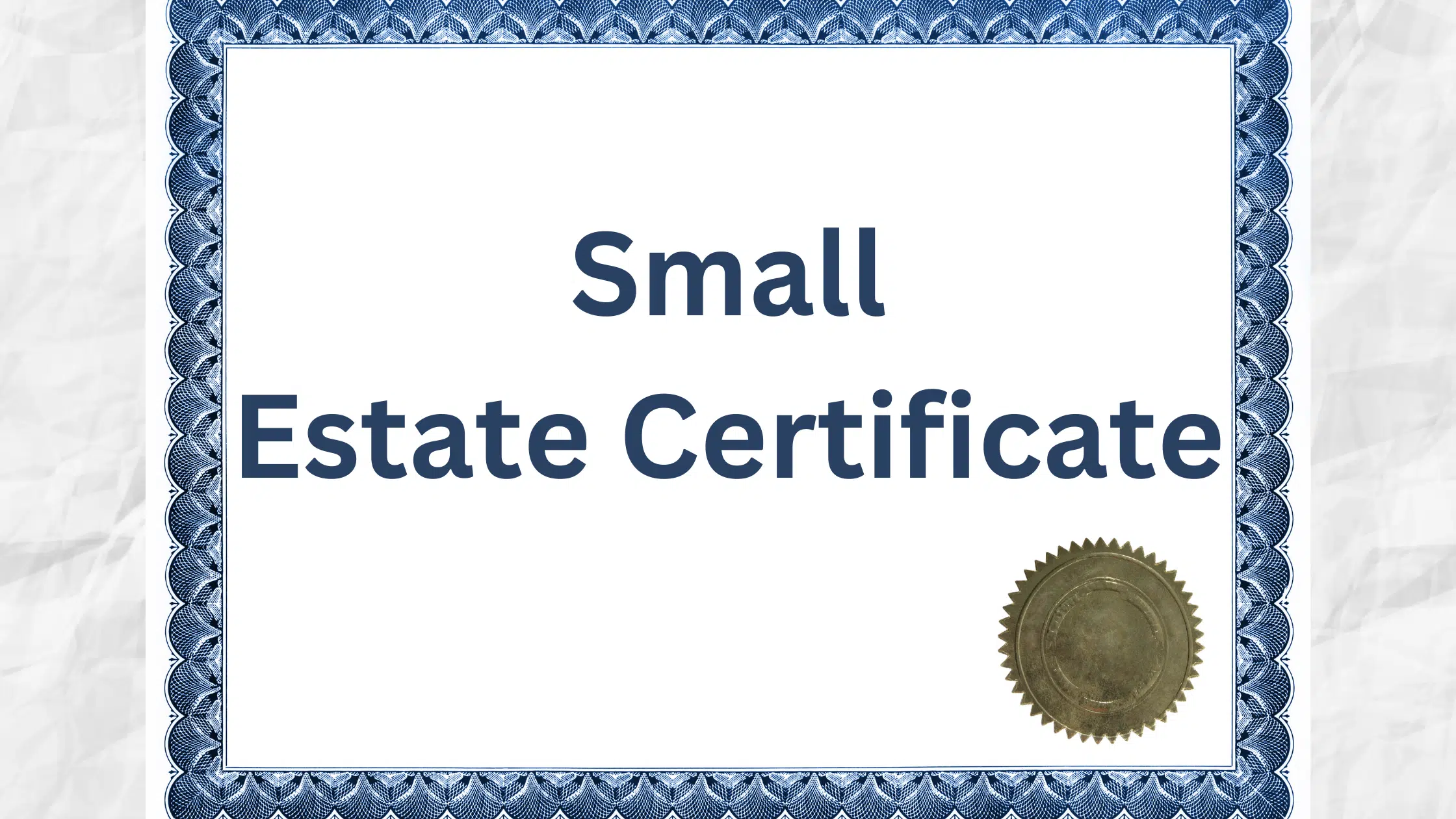Losing a loved one is never easy and dealing with the administration of their estate can be a challenging and complex process, no matter the value of the deceased’s estate. With that said, the Small Estate Certificate, a process introduced by the court in 2021, can provide a more streamlined process for ‘small estates’ valued under $150,000.
Traditionally, in Ontario, an individual may become an Estate Trustee by applying for and obtaining a Certificate of Appointment of Estate Trustee with or without a Will. Notably however, in the context of ‘small estates’ that are valued under $150,000, an Estate Trustee may be appointed through a streamlined process known as the Small Estate Certificate. While the Small Estate Certificate can serve as an advantageous tool to simplify the probate process, there are several important things to know about the scope and purpose of a Small Estate Certificate before endeavoring to obtain one.
Understanding the Small Estate Certificate
The Small Estate Certificate is a certificate issued by the Superior Court of Justice in Ontario, by way of application. An applicant would complete the requisite forms, including an itemized list of the deceased’s assets and value, as well as an affidavit outlining the details of the Applicant’s entitlement to apply and/or their proper intention to administer the estate. Notably, the application for a Small Estate Certificate does not require the applicant (resident of Ontario) to post a bond.
If the application is acceptable, the court will issue a Small Estate Certificate which effectively provides the applicant authority to manage and distribute the assets identified in the Small Estate Certificate.
Qualifying for a Small Estate Certificate
In order to fall within the scope of the Small Estate Certificate process, the deceased’s estate must meet the following criteria:
- Estate Value: The total value of the deceased’s assets must fall within the established $150,000 threshold.
- No Real Property: The deceased’s estate cannot include any real property (real estate) unless the property is held by the deceased as a joint tenant with a right of survivorship.
- No Disputes: The Small Estate Certificate’s purpose is truly to streamline the probate process. Once conflict arises, for example, where a completing application is filed or where a beneficiary files a Notice of Objection, the subject estate would fall outside the scope of the Small Estate Certificate process. As such, to apply for a Small Estate Certificate, there should be no disputes or conflicting claims regarding the distribution of assets of the estate.
When a Small Estate Certificate is Appropriate
It is vitally important to distinguish the scope of a Small Estate Certificate from the traditional Certificate of Appointment of Estate Trustee with or without a Will. In the case of a Small Estate Certificate, the Estate Trustee will possess authority only over the assets which were itemized in the application. For clarity, the Small Estate Certificate will specifically list the itemized assets using the language from the Estate Trustee’s application.
In contrast, the traditional Certificate of Appointment of Estate Trustee appoints an Estate Trustee generally and provides the Estate Trustee with full reign authority to administer any and all of the estate’s assets, regardless of: (1) the value of the assets; and (2) whether or not the assets were listed in the application for the certificate.
Consequently, the scope of the Small Estate Certificate is limited in comparison to the traditional route. An Estate Trustee appointed by way of Small Estate Certificate may only deal with the assets listed in the Small Estate Certificate. This can become a problem where assets of the deceased are discovered after the issuance of the Small Estate Certificate. In that case, the Estate Trustee would be required to amend their initial application and/or file a new application with respect to the newly discovered asset, depending on whether the newly discovered asset pushes the estate beyond the $150,000 value threshold.
As such, the Small Estate Certificate should only be considered where an applicant is confident that all of the assets of the deceased have been discovered and identified. It is critical that an Applicant is sure that all assets have been identified in order to avoid the extra time and costs associated with amending and/or filing additional applications as a result of new assets being discovered.
Small Estate Certificate: Takeaway
Obtaining a Small Estate Certificate in Ontario can be a practical and efficient way to manage the assets of a smaller estate. It helps simplify the probate process, reducing the administrative burden during an already challenging time. However, applicants should be weary of the exact scope of a Small Estate Certificate where the deceased’s assets remain to be identified and/or discovered as this could lengthen the time and expense associated with administering the estate.
This blog post was written by Sarah Antonious, a member of the Commercial Litigation and Estate Litigation teams. Sarah can be reached at 613-369-0385 or at sarah.antonious@mannlawyers.com.








